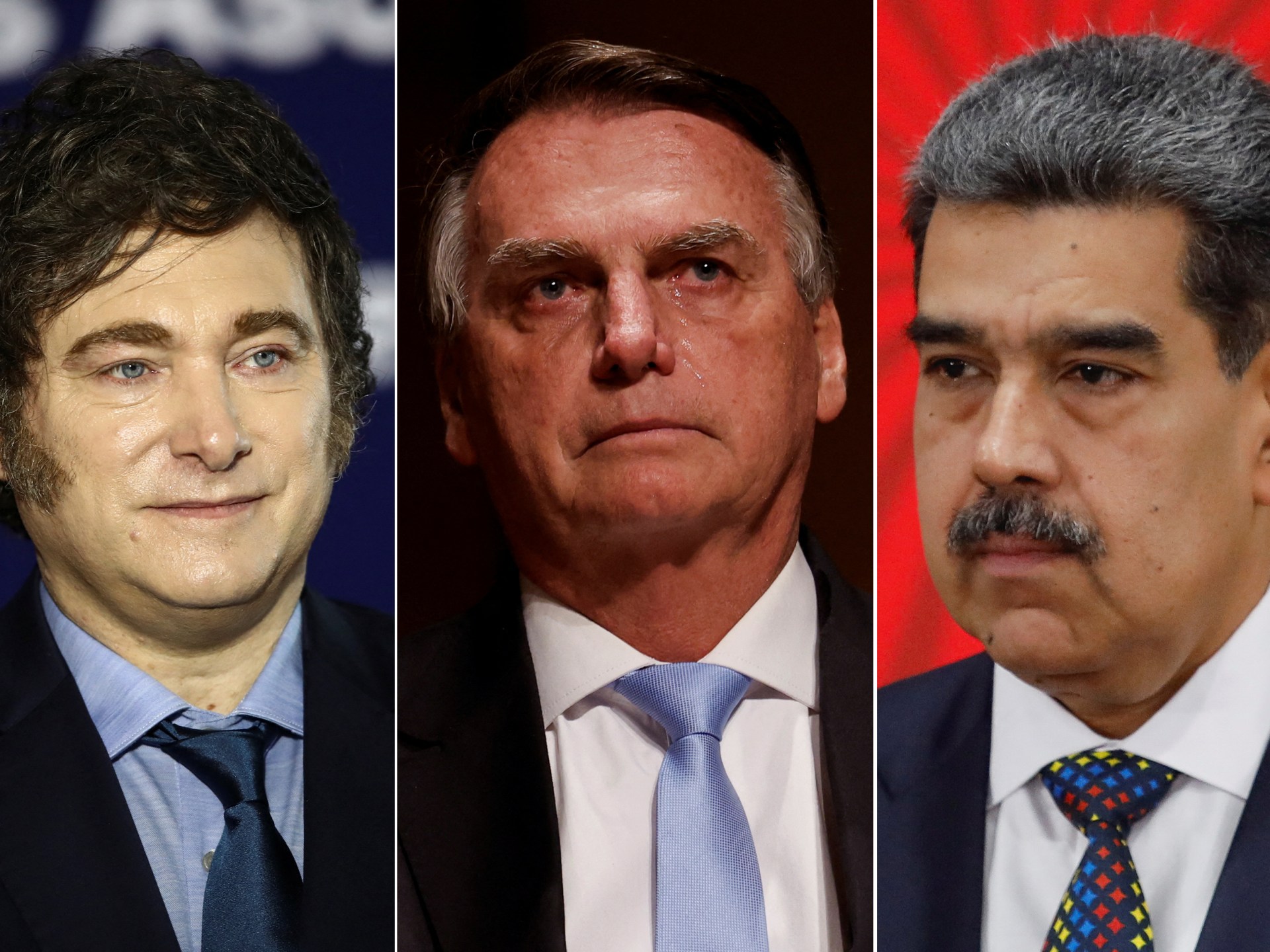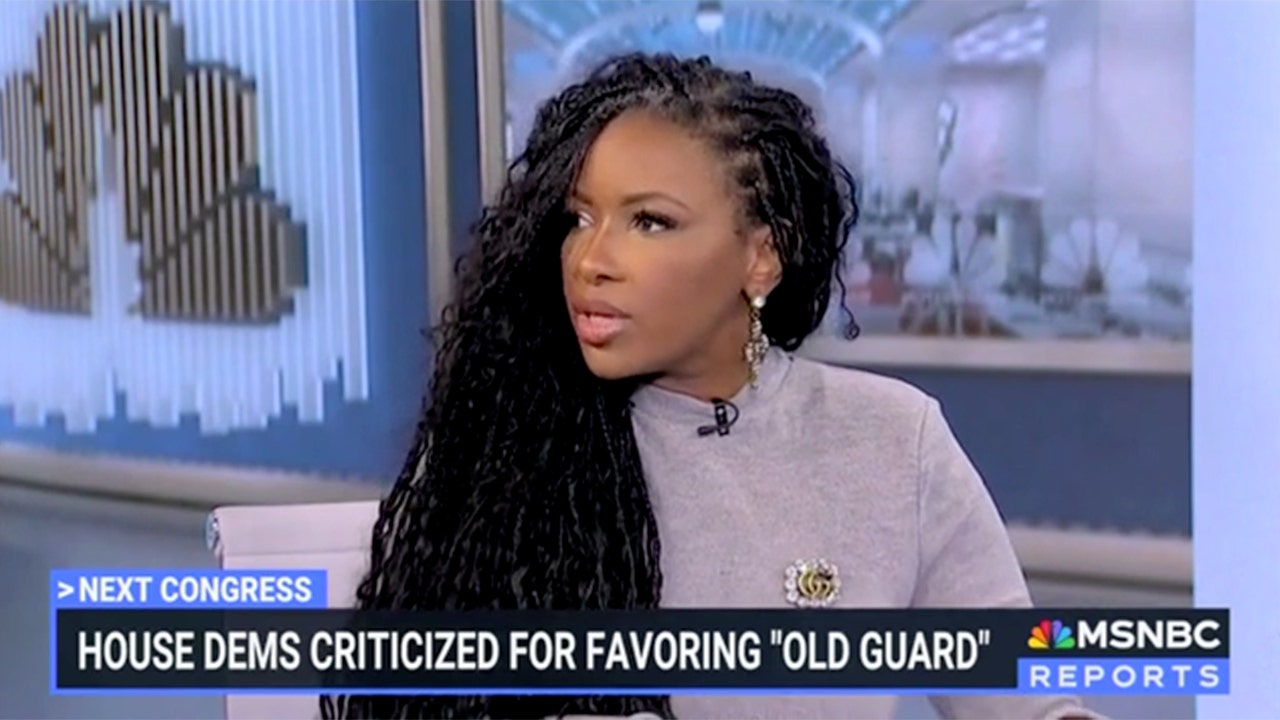The US presidential election dominated global headlines for much of last year.
From polls to rallies and vitriol on the campaign trail, all eyes were on the showdown between Democrat Kamala Harris and Republican Donald Trump on November 5.
Since Trump’s decisive victory, much of the world has shifted its focus to analyzing what the former US president has planned for his second term in office, which is scheduled to begin in January.
But 2024 wasn’t just about Trump and American politics.
The past year has seen a series of critical developments in countries around the world, from Israel’s deadly bombing of the Gaza Strip to the devastating war in Sudan and the recent ouster of Syrian President Bashar al-Assad.
In the Americas region, 2024 will be marked by a changing political landscape, crackdowns on dissent, deadly violence, and the effects of the worsening climate crisis.
Here’s a look at seven stories that shaped the Americas this year.
Disputed elections in Venezuela
Massive protests erupted in Venezuela after President Nicolas Maduro was declared the winner of a third term in the country’s presidential elections on July 28.
With the government refusing to reveal the usual voting results, the opposition published its own documents that it said prove Maduro won by fraud.
Public anger over the results spread to the streets for weeks after the race was called. Police fired tear gas and rubber bullets to disperse thousands of demonstrators in the capital, Caracas, and other cities.
Human Rights Watch reported that at least 23 protesters or bystanders, as well as a member of the National Guard, were killed in the government crackdown. Thousands of Venezuelans have also been arrested.
Maduro blamed the protests on his political opponents and foreign powers, accusing them of seeking to destabilize the South American country. He promised to publish the full results of the votes, but has not yet done so.
In early September, a Venezuelan judge issued an arrest warrant for opposition presidential candidate Edmundo Gonzalez, who went into hiding after the vote. Gonzalez has since fled to Spain, where he requested political asylum.
“We are witnessing an intensification of the state’s repressive machinery in response to what it sees as critical views, opposition or dissidence,” Marta Vallinas, head of the UN fact-finding mission on Venezuela, said in a September 17 report.
Gang violence on the rise in Haiti
Over the past 12 months, Haiti has witnessed a deepening political, security and humanitarian crisis, as authorities struggle to stem a wave of deadly gang violence.
In late February, the situation deteriorated when powerful armed groups launched coordinated attacks on prisons and other state institutions in the capital, Port-au-Prince. The gang leaders demanded the resignation of unelected Prime Minister Ariel Henry.
Henry stepped down in March, and a transitional presidential council was formed with the aim of leading the political transition in Haiti and organizing elections. The council then appointed an interim Prime Minister, Gary Connell, in May.
But violence continued across Port-au-Prince, forcing tens of thousands of Haitians to flee their homes in search of safety. Access to adequate food, health care and other services was severely restricted, and there were frequent reports of massacres, rape and other violence.
The deployment of a Kenyan-led police force supported by the United Nations did not succeed in stopping the gangs, who are believed to now control about 85 percent of the Haitian capital. Observers say the deployment is understaffed and under-resourced.
Meanwhile, political conflict between the Transitional Presidential Council and Connell’s interim government led to the ouster of the Prime Minister in November. An interim Prime Minister, Alex Didier Fils-Aime, was appointed in his place.
Brazilian police say Bolsonaro was involved in the coup attempt
In November, police in Brazil announced surprising allegations against former far-right president Jair Bolsonaro.
The case centers on an alleged plot to overturn Bolsonaro’s narrow defeat in the 2022 elections.
Police accused Bolsonaro of participating in a failed plot aimed at preventing his leftist rival, incumbent President Luiz Inacio Lula da Silva, from taking office after a close election race in 2022.
They said in a statement that Bolsonaro and 36 other people, including some of the former president’s aides and former government ministers, planned the “violent overthrow of the democratic state.”
Bolsonaro, a former Brazilian army captain who served as president from 2019 to 2022, has denied any wrongdoing and said he is the victim of a political witch hunt. He promised to launch a legal “battle” in his defense.
Violence escalates in Sinaloa after the arrest of the cartel leader
It was a big year in Mexican politics, as the country held the largest elections in its history and Claudia Sheinbaum became its first female president.
But the election was also one of the bloodiest in Mexico – partly due to the influence of the country’s prominent drug trafficking gangs.
One state where violence is still rising is Sinaloa, in the northwestern part of the country. There, rivals within the Sinaloa cartel struggle to fill the power vacuum left by the arrest of co-founder Ismael “El Mayo” Zambada Garcia.
US authorities arrested Zambada on July 25 along with Joaquin Guzman Lopez, one of the sons of the gang’s other co-founder, Joaquin “El Chapo” Guzman.
Zambada said he was kidnapped and taken against his will to the United States, where he pleaded not guilty to a slew of criminal charges, including murder and drug trafficking.
The deteriorating situation in Sinaloa posed one of Sheinbaum’s first major challenges since she took office in early October, succeeding her mentor and Morena party leader Andres Manuel Lopez Obrador.
Jacobo Quintero, a restaurant owner in Culiacan, the state capital, told Al Jazeera in September that the city had reached a standstill as residents were afraid to leave their homes amid the violence.
“We have about 15 percent of our regular customers,” he said. “People don’t want to go out because there are risks. They are afraid.”
Energy crises hit Ecuador and Cuba
Ecuador, which has long suffered from a surge in violence linked to drug trafficking, faced another serious threat this year: the effects of climate change.
A regional drought exacerbated by the El Niño weather phenomenon forced Colombia to cut electricity exports to the country in April, sparking a crisis for Ecuadorian President Daniel Noboa.
The situation deteriorated further as record forest fires broke out near the capital, Quito, as well as in other parts of the country. In November, Ecuador declared a 60-day state of emergency to help raise funds to combat the fires.
The drought – widely seen as the worst to hit Ecuador in decades – has crippled water levels at hydroelectric dams that supply power to much of the country. The authorities ordered a power outage for several hours a day and urged residents to conserve electricity.
A similar crisis has emerged in Cuba, where authorities imposed daily power outages in an attempt to shore up the Caribbean island’s dwindling electricity supply.
Cuba’s national power grid collapsed several times in 2024, leading to a number of nationwide power outages over several weeks between October and early December.
The country’s power plants are aging, and Cuban authorities are struggling to obtain enough oil to operate them amid shrinking imports from Russia, Venezuela and Mexico.
Strong storms also disrupted the grid in October and November, hitting Cuba with strong winds and storm surge.
Canada accuses Indian agents of involvement in the killing of a Sikh activist
The diplomatic dispute between Canada and India was renewed in October when Canadian officials said they had evidence showing that Indian government agents had engaged in activities that threatened Canadian national security.
The federal Royal Canadian Mounted Police said they found evidence of Indian agents engaging “in serious criminal activity in Canada,” with links to “murders and acts of violence” and interference in democratic processes, among other things.
Relations between Ottawa and New Delhi soured in 2023 after Prime Minister Justin Trudeau said Canada was investigating possible ties between India and the killing of prominent Canadian Sikh separatist leader Hardeep Singh Nigar.
The allegations sent shockwaves across the country and sparked an angry reaction from New Delhi, which rejected them outright.
After the latest accusations were published in October, Canada ordered the expulsion of six Indian diplomatic and consular staff. Foreign Minister Mélanie Jolie said the individuals were considered “persons of interest” in Al-Najjar’s case.
In a reciprocal move, the Indian government also ordered six Canadian consular employees to leave.
The Indian Ministry of External Affairs strongly rejected Canada’s allegations, and said in a statement that “on the pretext of investigation, there is a deliberate strategy to defame India for political gain.”
High poverty rate in Argentina
Argentina’s poverty rate has risen over the past year, as far-right President Javier Miley – who is sworn in at the end of 2023 – continues his liberal economic agenda and cuts government programs.
“This is very difficult. Before, we had a house. We had access to benefits. But (the government) suddenly took everything away,” Marianela Abasto, 24, told Al Jazeera recently at a soup kitchen in the capital, Buenos Aires. “I don’t know what we’re going to do.”
Miley’s hardline reforms sparked major protests nationwide, with thousands taking to the streets in June over planned austerity measures.
However, despite the rejection, the Argentine president has retained his supporters, and is still seen as a success symbol for the global far right.




